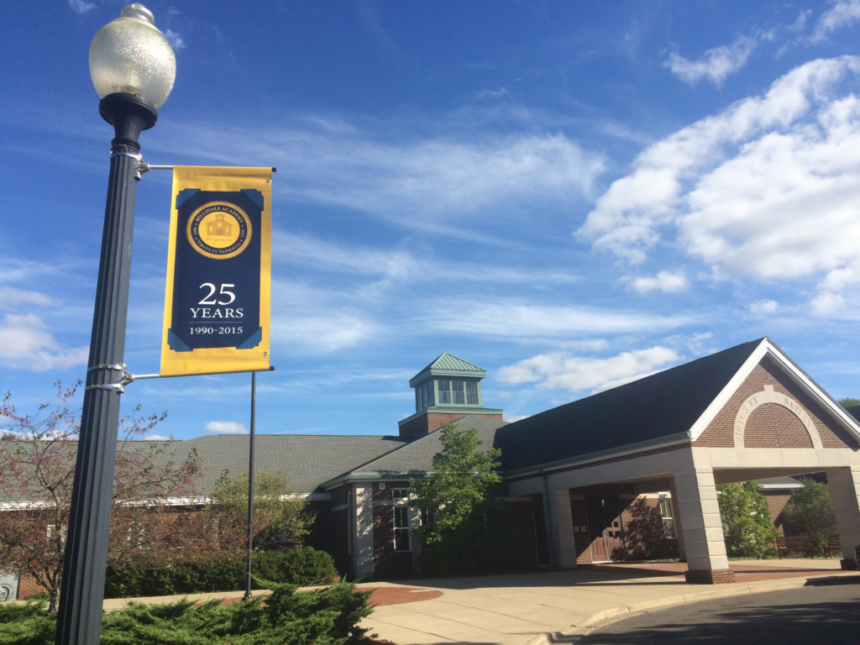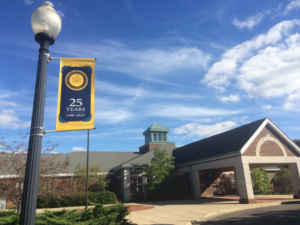Hillsdale Academy opened 25 years ago to lead schools to a return to classical education principles. Today, hundreds of schools across the nation model themselves off its example.
“We are a model to celebrate,” said Mike Roberts, Academy assistant headmaster and athletic director. “While the standard schools should hold students to has been lowered, the Academy has continued to have high standards no matter what culture says.”
This weekend, the Academy will celebrate its 25th anniversary, and many—from parents to donors and legislators—will attend the celebration to commemorate the school’s success.
Like Hillsdale College, the Academy was founded upon the Judeo-Christian tradition, and it aims to prepare students both for continued education and to be good citizens, according to Roberts.
“We are the K-12 expression of the Hillsdale College mission,” Academy Headmaster Kenneth Calvert said.
While many people grew increasingly concerned about the lack of quality education in 1980s America, several schools returned to emphasizing classical educations, Calvert said, and Hillsdale Academy helped lead the movement. Because this was a divergence from the majority of America’s schools, college Provost David Whalen said it was important for the Academy to thrive.
“The Academy venerates traditional institutional standards of the West,” Whalen said. “Fidelity to some old thing is often regarded as some quaint eccentricity and more often as an inability to stand on your own intellectual feet. We’re going against the tide, so if we do it, we must make it excellent.”
U.S. Rep. Tim Walberg (R-Mich.), who frequently visits the Academy and will participate in its weekend celebration, said he admires the school’s commitment to timeless principles.
“What’s impressed me is its acknowledgement and respect for Judeo-Christian, biblical principles done in a way that says, ‘We’re not ashamed to say we believe these basic principles
work but we’ll let you determine whether you agree with this approach,’” Walberg said.
While the Academy is young, Roberts said its focus on “tried and proven” methods heavily contributes to its success and other schools’ ability to replicate its practices.
Whalen agreed, saying that the Academy doesn’t have “age and venerability, but it has a proven philosophy and principled foundation.”
Like the college, the Academy does not accept government funding. Calvert and Roberts said this independence helps the school pursue a more valuable education than tests can show. Yet, test scores reflect highly on its students.
Their ACT scores rank in Michigan’s top three percent and though the Academy does not offer Advanced Placement classes, 93 percent of students who take AP tests earn a score higher than a 3.
“Test scores are nice, they give the world an indication of the quality of our academics, but in the end, it’s not what we’re about,” Calvert said. “We do something more profound than test scores. We’re about shaping men and women to be good, intelligent, and tough citizens.”
Public, private, and charter schools look to the Academy for advice on how to accomplish this with their own students. Both Calvert and Roberts acknowledge that only parts of the Academy can be duplicated, but the point is to shape each school according to its community.
“We want to help spread classical education by planning schools to fit in their local communities,” Calvert said.
By modeling what can be achieved with its abnormal educational approach, Roberts said many Academy visitors say they are inspired about the potential of education.
“We serve as a message of hope that education will improve in their communities,” Roberts said.


